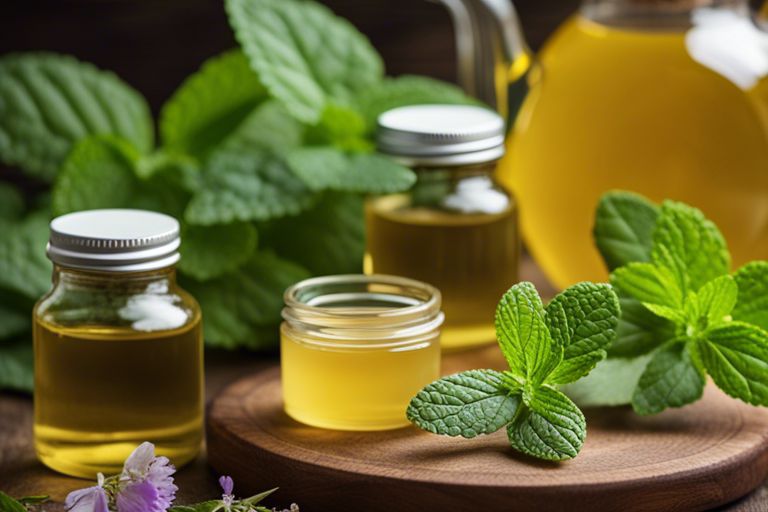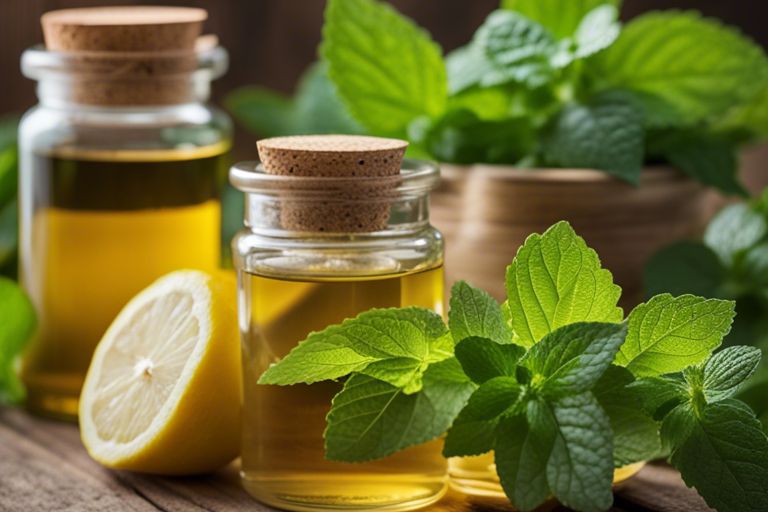DIY Lemon Balm Remedies
Lemon Balm, a wonderfully versatile herb known for its calming properties, is a staple in many gardens. Not only is it great for attracting bees, but it’s also a powerhouse when it comes to soothing a variety of ailments. From anxiety relief to skin irritations, this herb can do it all. In this blog post, we’ll explore some simple and effective DIY remedies you can create at home using lemon balm to improve your well-being.
Key Takeaways:
- Lemon Balm Benefits: Lemon balm has various health benefits, including improving mood, promoting relaxation, and aiding digestion.
- DIY Remedies: You can easily make lemon balm remedies at home, such as lemon balm tea, lemon balm tincture, or lemon balm salve.
- Natural Healing: Using DIY lemon balm remedies can be a natural and effective way to treat stress, anxiety, insomnia, and other health issues.
1. Lemon balm can help reduce anxiety and stress levels.
2. DIY lemon balm tea aids in relaxation and sleep.
3. Lemon balm salve relieves insect bites and rashes.
4. Lemon balm oil is effective for cold sores.
5. Lemon balm tincture supports digestive health.
6. Lemon balm can be grown easily at home for use.
Lemon Balm Basics
Even though it looks like a humble herb, lemon balm has a myriad of uses and benefits. This vibrant and aromatic plant belongs to the mint family and is known for its calming and soothing properties. In this chapter, we will dive into the basics of lemon balm, including how to grow it, harvest it, and store it for future use.
Growing Your Own Lemon Balm
Growing your own lemon balm is an easy and rewarding experience. This herb thrives in well-drained soil and loves plenty of sunlight. You can start from seeds or purchase a small plant from your local nursery. Remember to water it regularly, but be careful not to overwater as lemon balm doesn’t like soggy soil. With a little care and attention, you’ll soon have a flourishing lemon balm plant in your garden.
The best time to plant lemon balm is in the spring when the danger of frost has passed. Make sure to space the plants about 12-18 inches apart to give them room to spread. Lemon balm is a perennial herb, so it will come back year after year, providing you with a fresh supply of leaves for all your DIY remedies.
Harvesting and Storing Lemon Balm
The best time to harvest lemon balm is in the morning when the essential oils are most concentrated. You can either pick individual leaves or trim larger sections of the plant, depending on your needs. To store lemon balm, you can dry the leaves by hanging them upside down in a dark, well-ventilated area. Once dry, you can store them in an airtight container away from direct sunlight.
This delightful herb can be used fresh or dried in teas, tinctures, salves, and more. Its lemony scent and mild flavor make it a versatile ingredient in both culinary and wellness preparations. Whether you’re looking to calm your nerves or add a zesty twist to your recipes, lemon balm is sure to become a staple in your herbal arsenal.
Calming Lemon Balm Creations
Not only is lemon balm a wonderful herb for your garden, but it also has amazing calming properties that can be used to create homemade remedies. In this chapter, we will explore how you can make soothing lemon balm creations to help you relax and unwind.
Soothing Lemon Balm Tea
The fresh leaves of lemon balm can be used to make a delicious and calming tea that is perfect for sipping on a stressful day. Simply steep a handful of fresh lemon balm leaves in hot water for a few minutes to release its calming aroma and beneficial properties. You can add honey or lemon to enhance the flavor and enjoy a soothing cup of lemon balm tea.
Lemon balm tea is known for its ability to promote relaxation, reduce anxiety, and improve sleep quality. It is a natural remedy that can be enjoyed daily to help you unwind and de-stress after a long day. Incorporating soothing lemon balm tea into your daily routine can have a positive impact on your overall well-being.
Homemade Lemon Balm Tincture
Calming homemade lemon balm tincture is a concentrated liquid extract that can be easily made at home. By steeping lemon balm leaves in alcohol for several weeks, you can create a potent tincture that can be used to alleviate stress and promote relaxation. Just a few drops of this tincture can have a powerful calming effect on both the mind and body.
Calming homemade lemon balm tincture is a versatile remedy that can be added to beverages or taken directly for quick relief. Plus, it has a long shelf life, making it a convenient option to have on hand whenever you need a little extra relaxation. Incorporating this DIY creation into your self-care routine can help you manage stress and find moments of calm in your busy day.

Lemon Balm for the Skin
Despite its soothing aroma and calming properties, lemon balm can also work wonders for your skin. This fragrant herb is not only beneficial for relaxation but can also be an excellent addition to your skincare routine.
From reducing inflammation to promoting healthy skin, including lemon balm in your beauty regimen can help address various skin concerns naturally.
Lemon Balm Infused Oil
For a simple yet effective skin treatment, try making your own lemon balm infused oil. To create this infusion, steep dried lemon balm leaves in a carrier oil like olive oil or almond oil. After a few weeks, strain the leaves out, and you’ll have a potent oil that can be used on your skin for moisturizing and soothing benefits.
This oil can be used directly on the skin or as an ingredient in DIY skincare products such as lotions, creams, or balms to harness the healing properties of lemon balm.
Lemon Balm Healing Salve
Lemon balm can also be used to create a healing salve that is perfect for addressing minor skin irritations, cuts, or dry patches. By infusing lemon balm into a combination of beeswax and oils like coconut or jojoba, you can create a soothing and protective salve.
This healing salve can help speed up the healing process of minor wounds, calm irritation, and provide a barrier to protect the skin while it recovers.
Lemon Balm Healing Salve: For an extra skin-nourishing boost, consider adding other herbs like calendula or lavender to your lemon balm salve for added benefits.
Skin: Incorporating lemon balm into your skincare routine can provide a natural way to address various skin concerns and promote healthy, glowing skin.
Cooking with Lemon Balm
After exploring the numerous health benefits of lemon balm, why not incorporate this versatile herb into your cooking adventures? Lemon balm adds a refreshing citrusy flavor to dishes, making it a delightful addition to both savory and sweet recipes. Let’s dive into the world of culinary creations with lemon balm!
Lemon Balm in Savory Dishes
Balm your taste buds with the vibrant taste of lemon balm in savory dishes. This herb pairs exceptionally well with poultry, fish, and vegetables. You can infuse olive oil with lemon balm for a zesty dressing, sprinkle chopped leaves on grilled chicken for a burst of freshness, or add it to soups and stews for a subtle citrus twist. The possibilities are endless when it comes to incorporating lemon balm into your savory creations.
Sweet Treats with Lemon Balm
Lemon balm isn’t just reserved for savory dishes; it’s also a delightful addition to sweet treats. Lemon balm can elevate your desserts with its fragrant lemony notes. You can use it to flavor ice cream, sorbets, and cakes. Try steeping lemon balm in cream for a unique twist on traditional desserts or mix it into fruit salads for a refreshing summer treat. Get creative in the kitchen and experiment with adding lemon balm to your favorite sweet recipes!
Treats your taste buds to a burst of citrus goodness with sweet treats featuring lemon balm. Whether you’re baking a cake, making homemade ice cream, or simply infusing water with lemon balm for a refreshing drink, this herb will add a unique and delightful flavor to your culinary creations. Don’t be afraid to get creative and experiment with different ways to incorporate lemon balm into your sweet dishes!
Final Words
With these considerations in mind, incorporating DIY lemon balm remedies into your routine can offer various health and wellness benefits. Whether you’re looking to alleviate stress, improve sleep, or soothe skin irritations, lemon balm proves to be a versatile and natural solution. By creating your own remedies at home, you can personalize the ingredients and methods to suit your needs best. Embrace the power of lemon balm and enjoy the numerous advantages it has to offer!
FAQ
Q: What is lemon balm?
A: Lemon balm is a herb from the mint family known for its calming properties and citrusy scent.
Q: How can I use lemon balm for DIY remedies?
A: Lemon balm can be used in various ways such as teas, salves, tinctures, and essential oils for its medicinal benefits.
Q: What are the benefits of using lemon balm?
A: Lemon balm is believed to help reduce stress and anxiety, improve sleep, aid digestion, and soothe skin irritations.
Q: How do I make a lemon balm tea?
A: To make lemon balm tea, steep fresh or dried lemon balm leaves in hot water for about 5-10 minutes, then strain and enjoy.
Q: Are there any precautions to consider when using lemon balm?
A: Lemon balm is generally safe for most people, but it may cause mild side effects in some individuals. It’s best to consult with a healthcare provider before using it, especially if you are pregnant, breastfeeding, or on medication.


